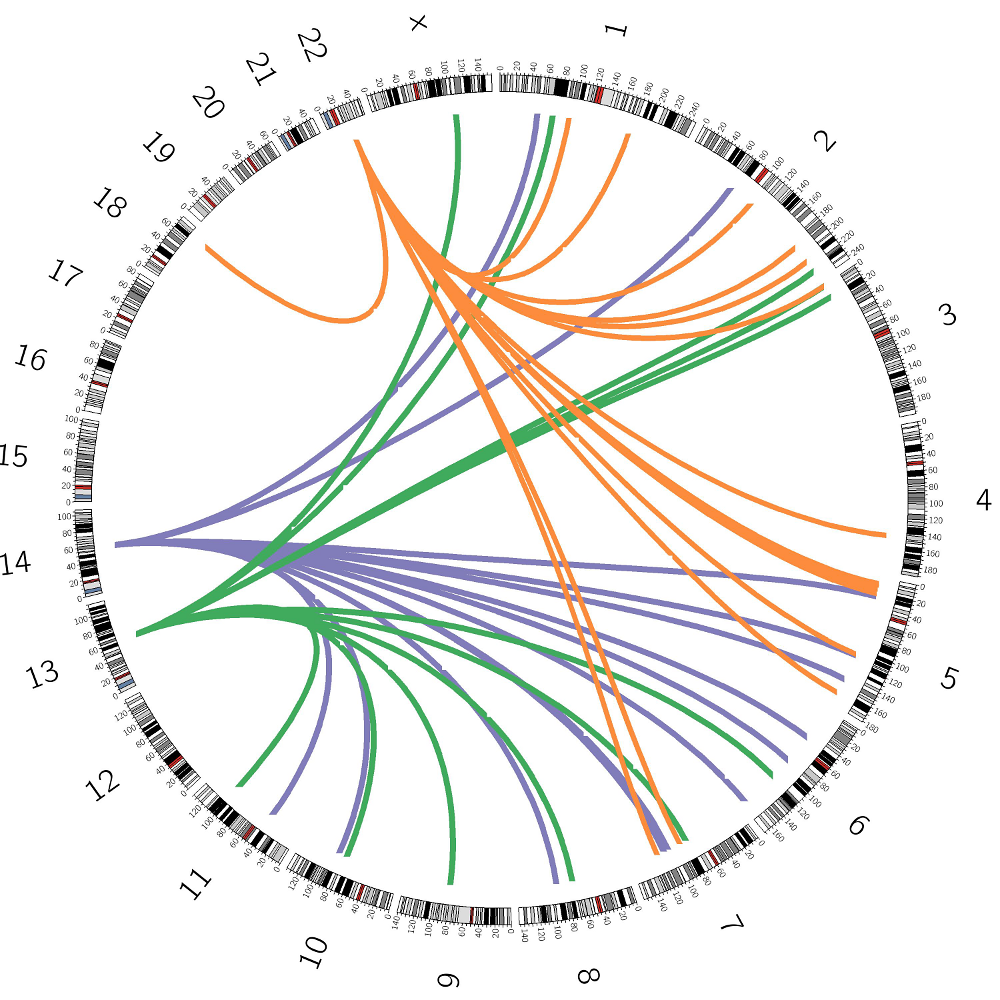Mobile DNA elements restructure cancer genomes

Researchers have found a novel mechanism that can restructure a cancer’s genome and introduce hundreds of mutations. Previously overlooked through misidentification, this mechanism, a common feature of lung and colorectal cancers, raises questions about the effect environmental factors can have on the evolution of a tumour.
Seventeen per cent of the human genome is comprised of ‘parasitic’, repeated DNA segments called LINE-1 elements that, occasionally, copy themselves and move to new locations in the genome. More rarely, they will aberrantly pick up a piece of adjacent, non-LINE-1 DNA and copy that to a new site: this is known as LINE-1 transduction.
“One in four of all LINE-1 events causing mutations in cancer is due to transduction, a significant contribution to the mutation landscape that has not previously been documented. Until this work, changes of this type remained mostly ignored because they were misinterpreted; now it’s important that we understand this process.”
Dr Peter Campbell Senior author from the Wellcome Trust Sanger Institute
Looking at 290 tumour samples from 12 different cancer types, the team found 3,000 sites where LINE-1 elements were mobilised solely in the tumour. In 24 per cent of the sites, small pieces of non-repetitive DNA were transduced by LINE-1 into another position in the genome, sometimes mobilising exons and even complete genes. These transductions were particularly common in lung and colorectal cancers. Researchers believe this may be caused by changes in methylation levels, which can be caused by environmental factors.
The researchers developed an algorithm that can search through the genome of a cancer sample and identify the origin and subsequent locations of the mobile LINE-1 elements. Strikingly, of the 500,000 LINE-1 elements that are found in the human genome, this study identified just 74 that reproduce themselves in cancer genomes. Of these, just two gave rise to one-third of all the transduction events identified in the study. Researchers also analysed the activity of LINE-1 elements in a tumour over time. They found that different elements became active and inactive at different points.
“Finding so few LINE-1 elements active in these tumours was surprising, so we looked to see if we could find a molecular explanation for this privileged activity. We found that methylation of LINE-1 plays a crucial role in switching the elements on and off.”
Dr Jose Tubio First author from the Sanger Institute
Larger datasets will be required to answer questions raised in this research about the functional consequences for individual genes interrupted by LINE-1 events and the influence these events may have on the development of a cancer. Researchers will now apply their method to 2,000 cancer samples collected by the Pan-Cancer Initiative, a collaboration involving The Cancer Genome Atlas and the International Cancer Genome Consortium.
“We believe that the majority of LINE-1 events are likely to be passenger mutations rather than drivers in cancer evolution. To understand the functional impact of these events on genes and on the progression of a tumour, we will need to survey the topography of cancer mobile elements in considerably larger scale, across thousands of cancer genomes, integrated with other mutational processes and transcriptional data.”
Dr Peter Campbell
More information
Funding
Please see the paper for full funding details.
Participating Centres
Please see the paper for a full list of participating centres.
Publications:
Selected websites
The Wellcome Trust Sanger Institute
The Wellcome Trust Sanger Institute is one of the world’s leading genome centres. Through its ability to conduct research at scale, it is able to engage in bold and long-term exploratory projects that are designed to influence and empower medical science globally. Institute research findings, generated through its own research programmes and through its leading role in international consortia, are being used to develop new diagnostics and treatments for human disease.
The Wellcome Trust
The Wellcome Trust is a global charitable foundation dedicated to achieving extraordinary improvements in human and animal health. We support the brightest minds in biomedical research and the medical humanities. Our breadth of support includes public engagement, education and the application of research to improve health. We are independent of both political and commercial interests.


